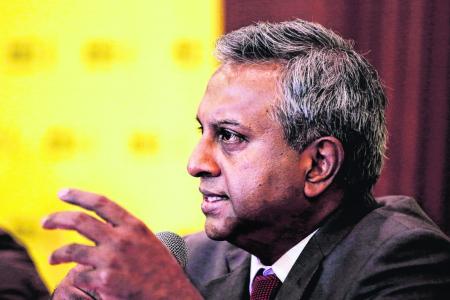Amnesty slams Trump-led ‘politics of hate’
LONDON: The "politics of demonisation" provided fertile ground for human rights abuses last year, exemplified by the response of Europe and the United States to the refugee crisis, rights group Amnesty said yesterday.
In its annual report, the British-based group took particular aim at US president Donald Trump's "transparently hateful" executive order banning entry to citizens of several Muslim-majority countries.
"Throughout 2017, millions across the world experienced the bitter fruits of a rising politics of demonisation," said the report, launched this year for the first time in the US.
It accused leaders of wealthy countries of approaching the refugee crisis with "evasion and outright callousness".
Amnesty secretary-general Salil Shetty said the US travel ban "set the scene for a year in which leaders took the politics of hate to its most dangerous conclusion". He also condemned Mr Trump's decision to keep the US camp at Guantanamo Bay in Cuba open, and his ambivalent attitude to waterboarding.
Amnesty said Myanmar's military crackdown on Rohingya insurgents, which prompted an exodus of nearly 700,000 Rohingya people into neighbouring Bangladesh, was the "ultimate consequence of a society encouraged to hate, scapegoat and fear minorities".
It highlighted recent elections in Austria, France, Germany and the Netherlands, where "some candidates sought to transpose social and economic anxieties into fear and blame", as evidence that the "global battle of values reached a new level of intensity" in 2017.
However, Amnesty said that it was possible for "ordinary people" to take back the initiative, noting that Florida students are demanding more gun control after the Parkland school massacre.
It praised the #MeToo campaign for drawing attention to sexual abuse and harassment but warned that Internet giants had too much power in shaping narratives and propagating "fake news".
It said that the "willingness of prominent leaders to tout 'fake news'... coupled with attacks on institutions that act as checks on power, show that free speech will be a key battle" in 2018.
"We must refuse to accept narratives of demonisation and build instead a culture of solidarity," it said. - AFP
Get The New Paper on your phone with the free TNP app. Download from the Apple App Store or Google Play Store now



